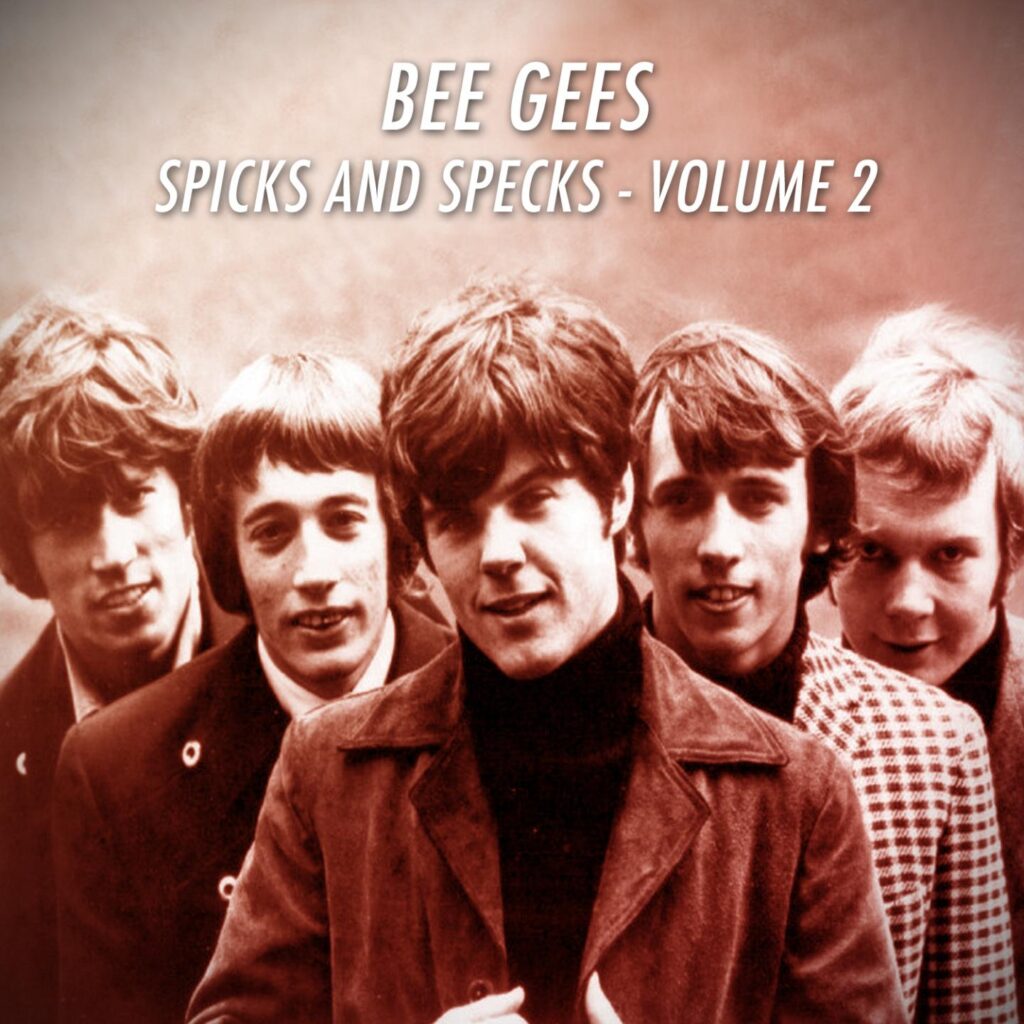
“Spicks and Specks” is the sound of small fragments—bits of love, dust of memory—caught in the light just before a life-changing goodbye.
In the long, winding story of the Bee Gees, few records feel as poignantly in-between as “Spicks and Specks.” It was released in Australia on September 22, 1966, on Spin (with “I Am the World” as its B-side), written by Barry Gibb and produced by Nat Kipner with Ossie Byrne. Those details read like tidy discography notes—until you remember what this single really was: a breakthrough that arrived at the very moment the brothers were already loosening their ties to Australia, turning their faces back toward England and an uncertain future. The official Bee Gees site tells it with almost novelistic irony: by the time they realized “Spicks and Specks” was a smash, they were already sailing back to the U.K.
Chart history captures that “slow fuse, sudden flare” feeling. On Australia’s national Go-Set chart (the first nationally published Australian chart), “Spicks and Specks” debuted at No. 37 on October 19, 1966, then surged to No. 4 by November 9, 1966, holding that No. 4 position again on November 16, 1966. And while different chart systems can tell slightly different versions of “how big” a hit was, it’s telling that the year-end Kent Music Report-based list of Australia’s top singles for 1966 places “Spicks and Specks” at No. 25, noting a highest position of No. 5 on that survey. However you measure it, the message is the same: this record mattered—enough to become the title track of their second Australian album, Spicks and Specks, released November 1966 on Spin.
The song’s afterlife also hints at how quickly the Bee Gees were becoming an international idea, not just a local success. When the single was issued in the Netherlands, Dutch chart records show it entered on April 8, 1967, peaking at No. 3 and remaining for 11 weeks. In Germany, it reached No. 28. And in New Zealand, it truly crowned itself: the New Zealand Listener-based chart shows “Spicks and Specks” at No. 1 (with a multi-week run noted on the listing for May 19, 1967), and a separate New Zealand number-one chronology lists the Bee Gees at the top from May 26, 1967 to June 2, 1967. Yet in the U.K.—despite a February 1967 release date often cited for Britain—industry commentary has noted that their debut UK single “Spicks and Specks” didn’t chart, which only sharpens the poignancy: sometimes a song is already a triumph somewhere, while sounding like a whisper in another place.
Musically, “Spicks and Specks” is built on a piano figure that feels both sturdy and slightly haunted—like footsteps in a hallway you haven’t walked in years. The harmonies carry that unmistakable early Bee Gees blend: sweet, tightly stacked, and strangely mature for such young voices. The lyric’s emotional logic is even more striking: it doesn’t describe heartbreak as one dramatic event, but as residue—little “spicks” and “specks” left behind after love has been handled, dropped, and swept up too late. It’s a song about what remains when the grand story is gone: the corners of a room, the edges of a photograph, the last echo in a house that’s already been sold.
And then the real-world narrative folds back into the music. A hit rising on the charts while the artists are already leaving port—there’s something almost mythic about that, as if the song itself refused to be contained by geography. “Spicks and Specks” became a hinge: the end of an Australian chapter, and the quiet beginning of the international Bee Gees. It doesn’t thunder like the later anthems would; it lingers. Like dust in sunlight, it reminds us that what seems small—one lingering chord, one half-said goodbye—can be the very thing that stays with us the longest.